Jabs at Westfield: Top ideas for getting Australia back to normal
Australian companies will be allowed to administer their own Covid-19 vaccination programs with many ready to get jabs into arms.
Coronavirus
Don't miss out on the headlines from Coronavirus. Followed categories will be added to My News.
Australian companies will be allowed to administer their own Covid-19 vaccination programs for staff, but this will not happen until later in 2021, the Treasurer has warned.
Fronting the media today after an online meeting with 30 of Australia’s top business leaders, Treasurer Josh Frydenberg and the chair of the government’s Covid-19 task force Lieutenant-General John Frewen confirmed the business sector would play a role in the vaccination rollout once there is sufficient supply.
“It won’t be for every workplace, and it won’t be immediately,” Lt Gen Frewen said.
But bringing industry more closely into planning would be a “very powerful partnership going forward”.
Mr Frydenberg said involving industry “continues the strong co-operation between the federal government and the business community since day one of this pandemic.”
He rejected a suggestion the move represented a step away from using GPs and pharmacies as providers of the Covid-19 vaccine.
“If you look abroad – America is a good example – they have been actively engaging business with the rollout,” Mr Frydenberg said.
“They’re not mutually exclusive. It’s about having as many points of contacts ap possible so you can reach as many people as possible.”
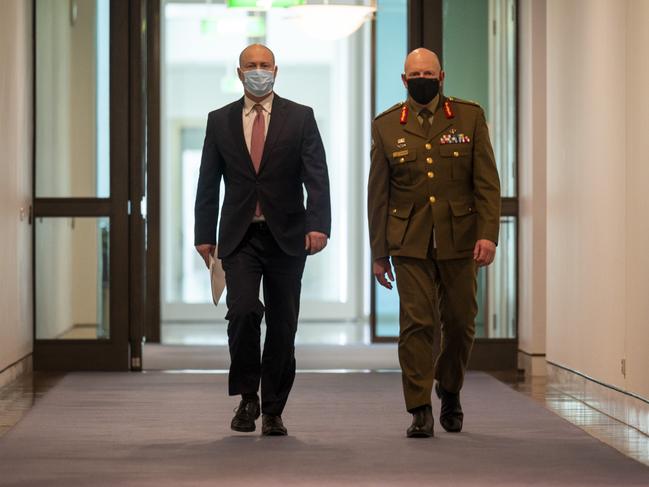
Mr Frydenberg also rejected a suggestion Australia did not receive more vaccines because it did not offer a high enough price.
“It’s not an issue of paying enough,” he said. “With Australia’s position, we didn’t receive as much as other countries in more emergency situations were.”
The Treasurer also confirmed he would not be bringing JobKeeper back, despite a request from NSW Treasurer Dominic Perrotet to do so.
JobKeeper was only ever meant to be “an emergency support package at the height of the pandemic,” Mr Frydenberg said.
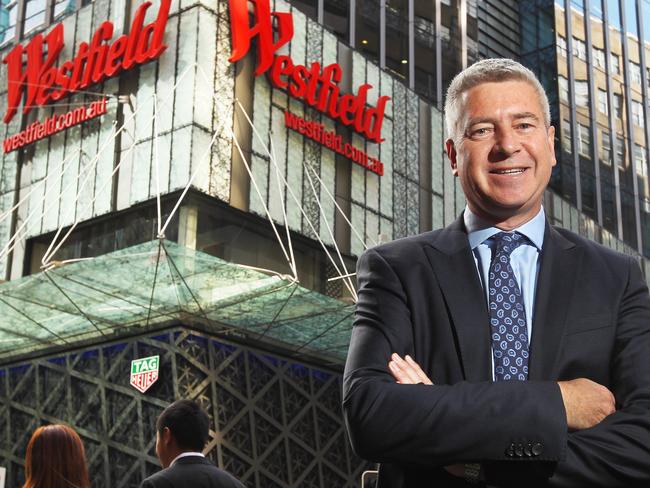
While the corporate sector is expected to welcome the ability to protect the health of their employees, others have called for shopping centres to be used as vaccination hubs.
Scentre Group chief executive Peter Allen said some of the company’s Westfield Shopping Centres would be ideal places for vaccination hubs.
“Westfield centres are community hubs and frequently visited places,” he said.
“We would welcome vaccination hubs in some of our Westfield centres to make it convenient and easy for our customers to access. We have made this offer to chief medical officers and state governments.”
Woolworths Group head of Covid response Ross Spencer said the company would also gladly open up its supermarkets for vaccine pop-ups if it was helpful.
“As Australia’s largest private employer, we’ve rolled out flu vaccinations to our workforce over many years with specialist health providers.
“We’d welcome the opportunity to do the same with the Covid vaccine, particularly for our frontline teams providing an essential service to Australian communities,” Mr Spencer said.
Woolworths, along with other major employers, will be taking part in a government roundtable today chaired by Lieutenant-General John Frewen. It is expected the companies will sign up to a new national vaccine rollout initiative.
Business Council of Australia Chief Executive Jennifer Westacott said it made sense to deploy existing business sector processes for the Covid-19 vaccine rollout.
“Business Council members alone employ more than a million people and help rollout the flu vaccine every year, so why not use that expertise to speed up the Covid vaccine rollout?,” she said.
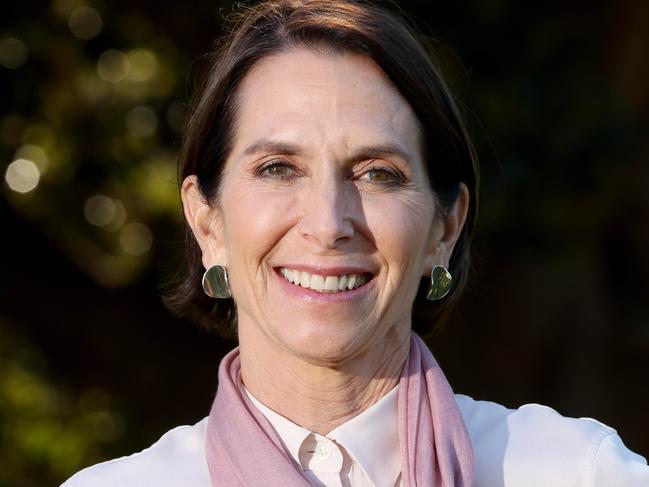
Virgin CEO Jayne Hrdlicka said big employers would welcome the opportunity to get involved.
“At Virgin Australia we certainly would, and this would also help us to manage vaccinating our team members who work on a roster system,” she said.
“Having large employers run vaccination programs would take pressure off government, get a large number of people vaccinated in a short period of time, and bring private sector efficiencies and capabilities into the equation.”
Qantas CEO Alan Joyce said a road map for getting back to normal was crucial.
“These phases will help businesses plan but it’s also really important for the community generally, knowing that this cycle of lockdowns and interruptions to their lives because of Covid is going to end at some point.
“We need some clear metrics to be able to chart our progress, so we know when we’re halfway or three quarters of the way through each of the phases. I think that’s important psychologically as much as anything,” he said.
While the vaccine rollout has been hampered by supply issues, Ms Westacott said it was imperative that the system be as streamlined as soon as possible once those issues were resolved.
“We have to make sure we’re getting people protected quickly and that our system is ready to go into overdrive when new vaccine supply is available,” she said.
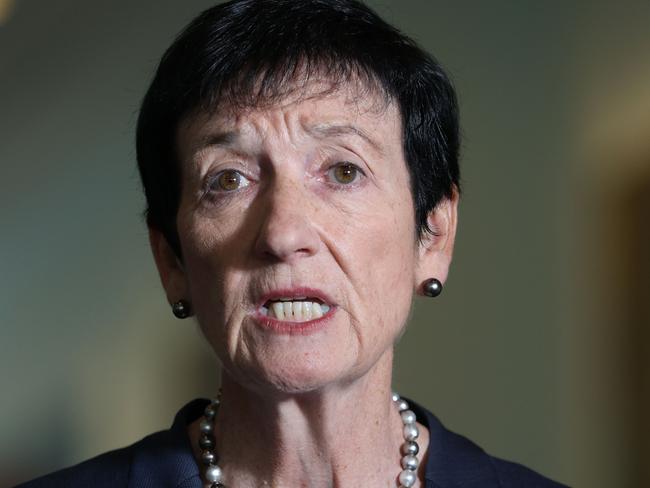
A spokesperson for trucking and logistics company Toll said the company was “ready to assist” with the vaccine rollout.
“We have huge scale across our national network in warehousing and transport, as well as deep logistics expertise, which can support a rapid scale up of our vaccination efforts.”
Chris Betro, the director of iMedical, a leading provider of corporate vaccination programs, said workplace jabs were efficient and easy for all concerned.
But he said there had been “Zero discussion” with the federal government about using companies to expedite the Covid-19 vaccination process.
“None of us have heard anything. We are all putting on the backburner until the Government rethinks things,” Mr Betro said.
TOP IDEAS FOR GETTING BACK TO NORMAL
Business leaders share the issues they think are most critical for getting Australia back on track.
Dominique Lamb, CEO of the National Retailers Association

“Ensuring that as many frontline retail workers as possible are vaccinated is a high priority. Many retail workers engage extensively with members of the public as part of their job and a high inoculation rate would go a long way to lifting restrictions such as store capacity. Via our vast networks, business groups such as the NRA are well placed to communicate directly to our workforce on any relevant government information on the vaccine.
The retail sector also needs the Federal Government to address labour shortages. Measures such as quotas for international workers who meet skill shortages in the Australian labour market would go a long way to restoring normality. Until the pandemic is fully behind us, an initiative such as this would obviously require strong safeguards to prevent any outbreak of cases but we think it is something the government should consider down the track.
But the biggest action our members would like to see from government is a definitive end to lockdowns. The Prime Minister announced last week that phase two of the transition out of the pandemic would include a vaccination threshold that would mean no further lockdowns. It’s important that this threshold is announced soon so that business can be provided certainty. In the meantime, we would also like to see stimulus measures for retailers impacted by any lockdown given we no longer have JobKeeper.”
Jenny Lambert, acting CEO, Australian Chamber of Commerce and Industry
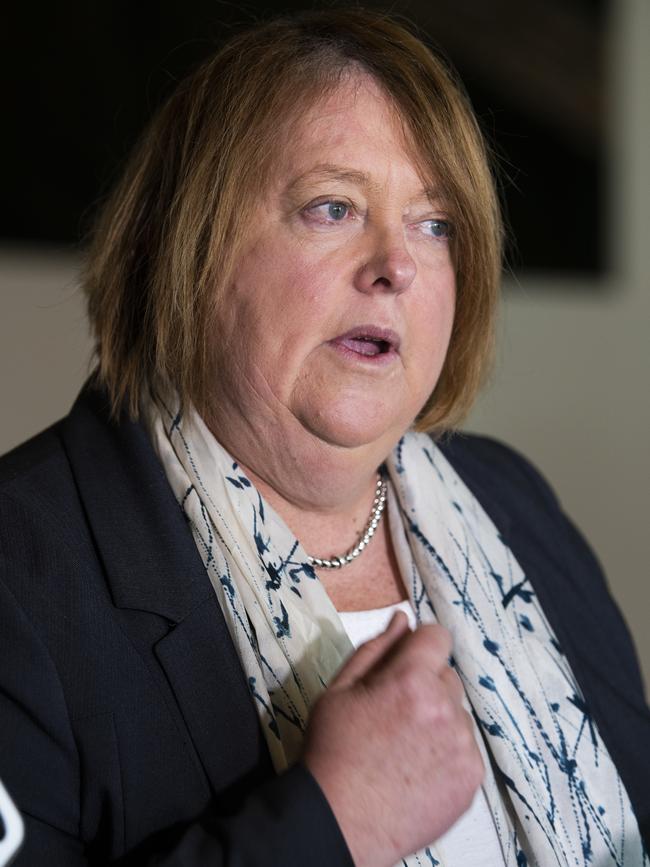
“Realistic thresholds: Quickly confirm, through modelling, realistic and achievable thresholds of vaccination that will allow us to move through the phases as soon safety can allow. Phase two restores inbound arrival numbers and streamlines vaccinated traveller entry which is a much-needed step for businesses reliant on building trading relationships, skilled migrants, and international students.
Work together: Encourage State and Territory Governments to confirm their commitment to only use lockdowns in the future as a last resort and agree to a shared definition of what ‘as a last resort’ looks like; and, to work together on the important trials in phase 1 that will allow Australian vaccinated travellers to self-isolate on return as well as bringing in much needed skills and returning students.
Clarity of message and business engagement: Commit to consistency of message across different persons within federal government and different levels of government unless changing health advice necessitates an amended message in which case this is clearly explained and actively work with the business community on ways to encourage greater vaccine take up as well as on government actions that impact people in business and the support needed when businesses and their workers have been detrimentally impacted by government restrictions.”
Peter Allen, Scentre Group chief executive
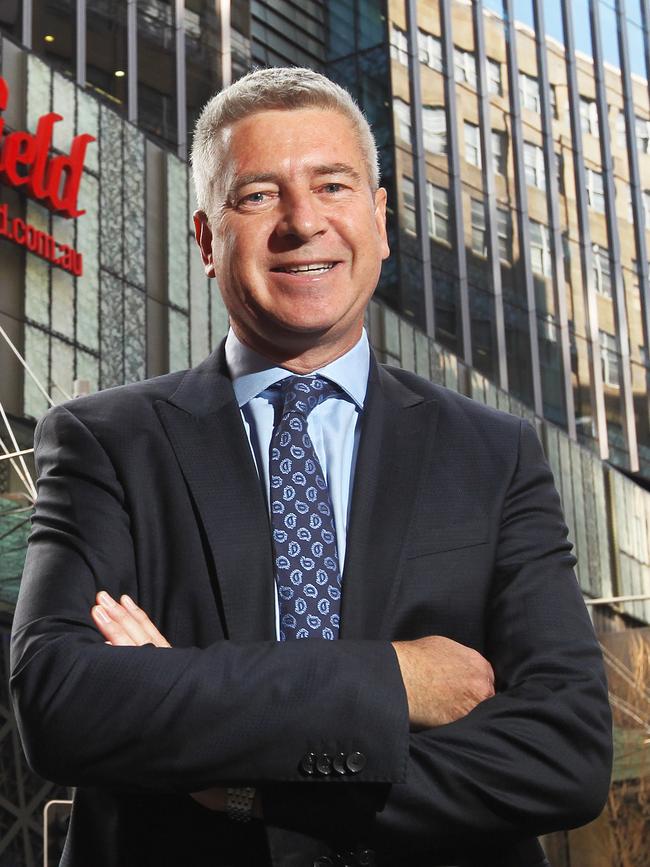
“1. Vaccination hubs in some of our Westfield centres. Westfield centres are community hubs and frequently visited places. We would welcome vaccination hubs in some of our Westfield centres to make it convenient and easy for our customers to access. We have made this offer to chief medical officers and state governments.
2. Clear and consistent advice to businesses. Strike a better balance between health and wellbeing and economic activity to support jobs and cashflow especially for small businesses who are often hit hardest by government restrictions.
3. Back industry plans to operate in a Covid Safe way. Engage more frequently with industry bodies to share timely updates on government policies and approach.”
Jayne Hrdlicka, Virgin Australia CEO
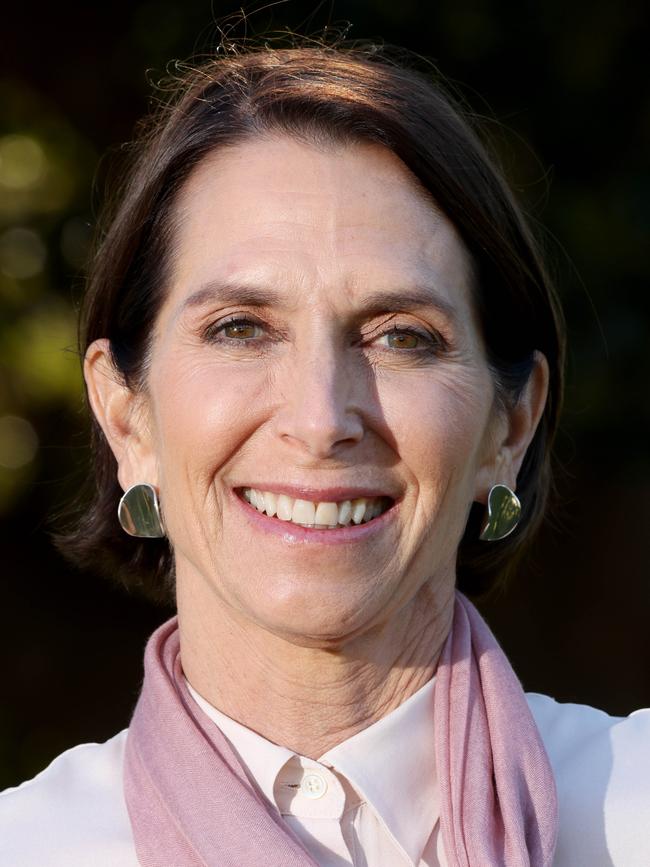
“1. Allowing large employers to run vaccination hubs
Big employers have the ability to stand up vaccination programs very quickly, and would welcome the opportunity to be able to vaccinate as much of their workforce as quickly as possible. At Virgin Australia we certainly would, and this would also help us to manage vaccinating our team members who work on a roster system. Having large employers run vaccination programs would take pressure off government, get a large number of people vaccinated in a short period of time, and bring private sector efficiencies and capabilities into the equation. We see a large number of people vaccinated through their employers for the flu each year, so why not for COVID-19 also?
2. Education campaign around safety/ efficacy of vaccination
A public education campaign, fuelled with information from around the world, to help people understand the safety and efficacy of each of the vaccine choices. There are some great examples of campaigns that have gone viral overseas in places like France, New Zealand and Singapore. There is too much misinformation and misguided fear around vaccination and it is time to fix that. People need to understand that the only way to protect themselves and their loved ones is to get vaccinated as soon as possible.
3. Commit to clear milestones, a timeline and a common set of rules to manage the short term
A clear and measurable set of metrics and a target timeline that moves the country to green enables everyone in the community to measure progress to a future where we don’t have to worry about planning weddings, attending funerals, supporting ageing parents, introducing new babies to family and generally be able to plan our lives with confidence. Equally important are common rules for passengers and airline crew alike with respect to border movements in this transition period. Each state has its own approach to borders and risk settings, but the cost, complexity and confusion this creates is devastating – not just for our sector, but also for consumer confidence.
Jennifer Westacott, Business Council of Australia Chief Executive
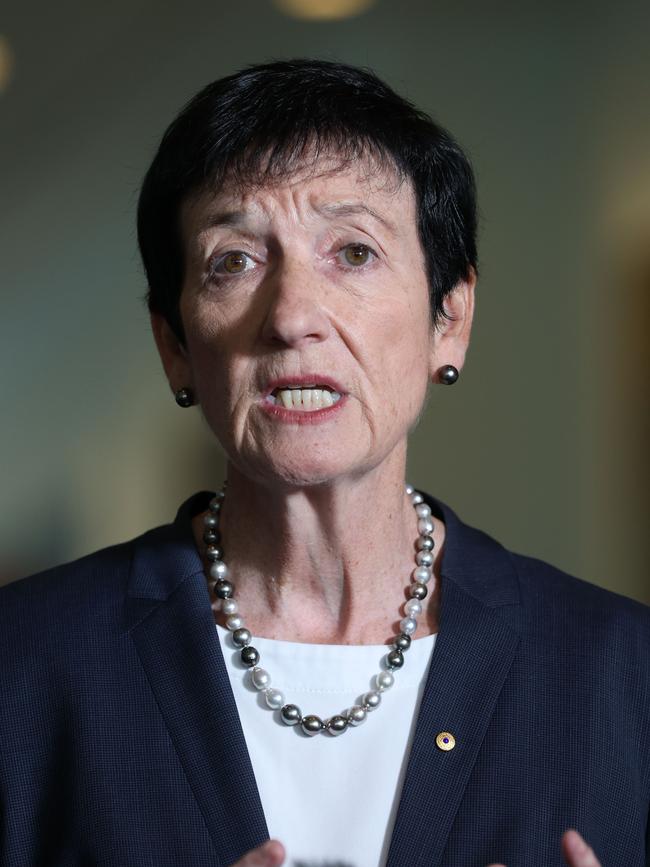
“1. Work quickly to develop a national plan to unwind restrictions with realistic and achievable targets and timeframes.
National Cabinet is developing a strategy to unwind restrictions, it is critical this is done as fast as practical. Every time a vaccine is administered, the risks to the community diminish, so it makes sense to phase out restrictions and gradually reopen our borders as our vaccinated population grows.
To make this plan work and unlock the economy, state and territory leaders must act together in the national interest to develop clear, achievable, and firm targets and very precise timelines. National consistency is key to ending the uncertainty and lifting confidence.
The sooner we get this done, the faster business and the rest of the community can plan to get on with their lives. We need a staged approach to bring back skilled workers and international students, who are important to our economy, because otherwise they will make permanent choices to go elsewhere.
2. Supercharge the vaccine roll-out and make sure we’re ready for new vaccine supply
As we put in place targets and timelines, we have to make sure we’re getting people protected quickly and that our system is ready to go into overdrive when new vaccine supply is available.
Throughout the pandemic, businesses have been ready to deploy their considerable know-how, resources, expertise and people to safeguard the community and help speed up our recovery. The vaccine roll-out is no different, we’ll be working with the government to find ways to get people protected.
For example, Business Council members alone employ more than a million people and help roll-out the flu vaccine every year, so why not use that expertise to speed up the Covid vaccine roll-out?
3. Gradually change the public health narrative
The vaccine will protect millions of Australians from death and serious illness, so the way we talk about the virus should reflect this.
To build confidence we will need to shift from reports about case numbers to numbers of people vaccinated, numbers of hospitalisations, numbers of critically ill patients and the demand on health services.”
Ross McEwan, NAB chief executive
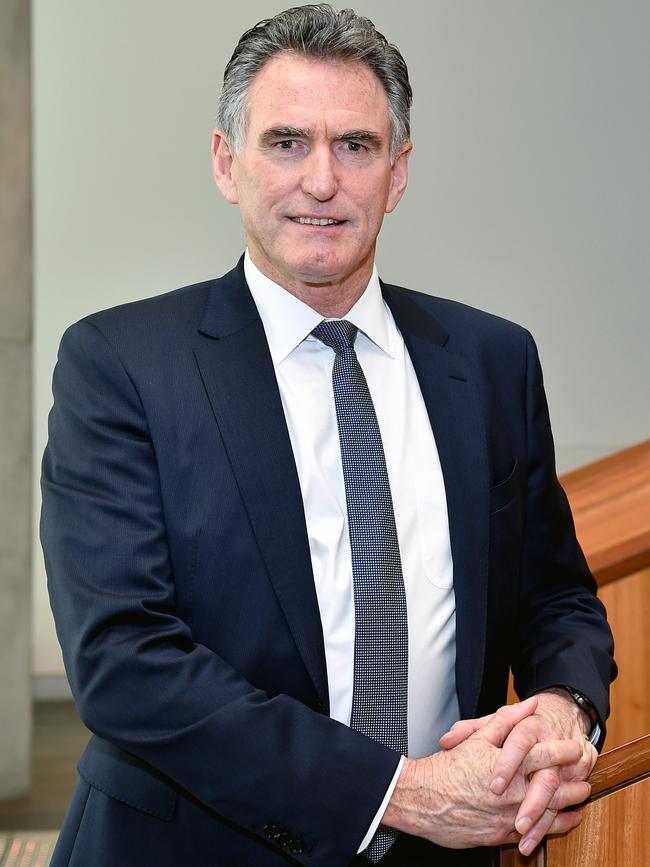
“The Government has done an excellent job throughout this pandemic, focused on the health and wellbeing of Australians and our economic stability.
“Measures such as enhanced investment incentives and the acceleration of tax cuts and infrastructure spending have clearly aided the rebound to pre-pandemic economic levels.
“The faster we’re all vaccinated, the better for all. We’re ready to support the vaccine rollout any way we can. We’re ensuring our colleagues have the flexibility and support they need to take time off to get their vaccination when they’re eligible, and we’ll help with a corporate rollout when the time is right.
“While challenges continue, we’re seeing more and more businesses growing, and our bankers are approving more business loans than before the pandemic.
“The path to a controlled re-opening of borders is critical to our long-term prosperity. The number one challenge our customers tell me they are facing is finding people to work. Businesses need labour for seasonal jobs and to meet surging demand in areas such as construction, parts of tourism and hospitality, and aged care. The return of international students will also be critical for the higher education sector, but also in bringing life back to our CBDs.
“Australia continues to demonstrate why it is a great place to live and work and I am confident we will emerge from this pandemic in a stronger position.”
Bruce Billson, Australian Small Business and Family Enterprise Ombudsman
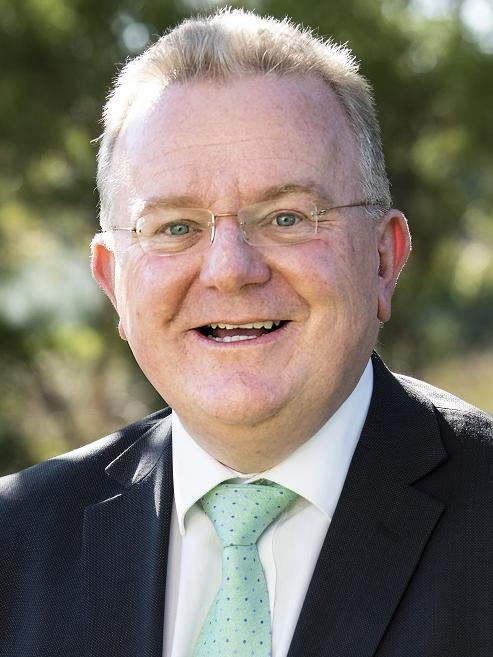
“1. Small and family businesses have had a hell of a time over the past 18 months as the pandemic has unfolded. It’s been gut-wrenching to see so many small businesses impacted by ongoing lockdowns, navigating uncharted commercial waters and restricted trading conditions.
It seems this is the new normal for the time-being. While there are outbreaks in the community, we may continue to see these lockdowns and restrictions occur. What the small business community needs right now is more certainty and a clearer sense of what the implications and obligations are and the support that can be counted on as Covid-constraints arise and change.
A national framework would provide small and family businesses with clear and predictable information about fit-for-purpose measures to help them navigate and adapt to these challenging times.
2. Once that national framework is in place, it needs to be rolled-out consistently and as soon as possible by all levels of government. We have seen very different approaches across the states and territories regarding both the handling of outbreaks and support measures for small and family businesses impacted by trading restrictions and lockdowns.
For small and family businesses to have confidence in the national framework, it needs to be implemented by states and territories in a unified way. All governments should be following through with clear and defined support packages for small and family businesses depending on the severity and longevity of the restrictions. This would assist small businesses in knowing what to expect and the help that can be counted upon to keep the business afloat and care for staff and customers.
3. As we recover from this pandemic, the focus should be on re-building and supporting the recovery of entrepreneurship and nurturing the central role of small and family businesses in our community and economy, by putting wind in the sales of smaller enterprises and using government procurement to drive small business growth and innovation. All levels of Government – local, state and federal – have a role to play in ensuring small and family businesses get a fairer slice of the procurement pie. Supporting small business participation in government procurement also supports job creation, economic growth and home-grown innovation. It’s in the national interest for all levels of government to be focused on supporting small businesses in any new programs being rolled-out and we can do our bit by being customers of small business. When small businesses thrive, so too does the broader community and economy.”
Simon Westaway, Australian Tourim Industry Council Executive Director
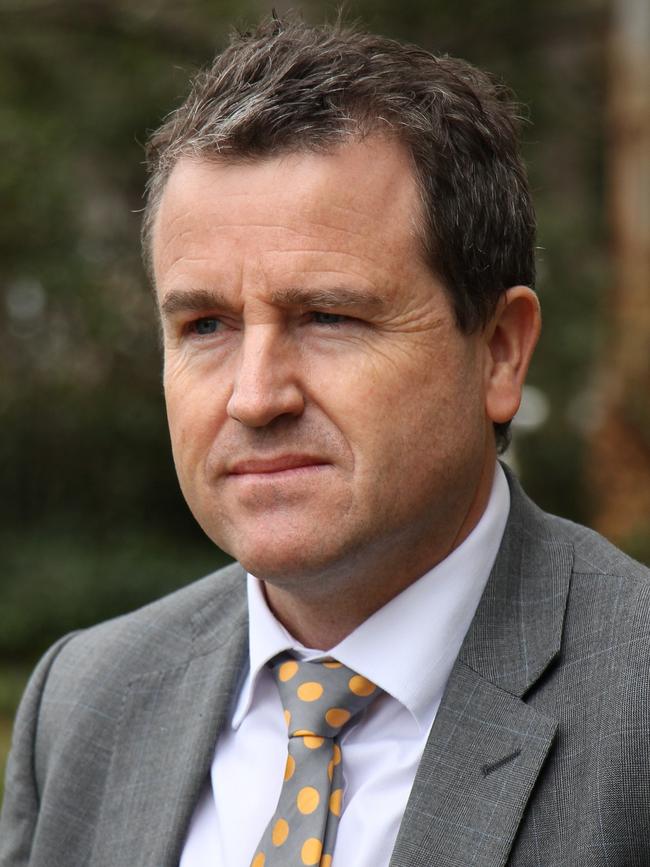
“1. Counteract the major economic and social impact and toll on Australian tourism.
Australian tourism lost $83 billion in the year to March 2021 as a collective result of the COVID-19 pandemic and bushfire crisis. There remains a major crisis of confidence around return interstate and international travel movement across borders. Our capital cities have stopped becoming destinations and there are few events. Open borders, in particular interstate travel opportunity, equate to boosted travel confidence.
2. Better recognise the tourism enterprise as the primacy of our industry and its futures
Direct policy prescriptions and coordinate outcomes across portfolios better designed to support longer-term business sustainability and willingness to invest or re-invest. In particular in quality, appealing product. Ongoing business tax and employment offsets and direct federal tourism infrastructure investment into iconic and emerging destinations to encourage more private investment.
3. Labour and seasonal workforce shortage
A historic issue, it remains the other biggest pressure point on Australian tourism and future
recovery. Includes prioritisation for a return of vaccinated, international Working Holiday Makers inearly return arrivals with greater flexibility to work in the sector across the country. As well, better online delivery of current tourism job opportunities. A coordinated and marketed domestic ‘gap year’ to better promote and leverage access to available work roles with travel for our school and tertiary education leavers and other Australians was an interesting, initial proposal out of the ‘Leeser Inquiry’ into Working Holiday Makers.
Andrew Sheridan, Optus Vice President Regulatory and Public Affairs

“At exactly the moment when 5G is opening new benefits for us, it is fantastic that our attitude toward technology is one which can expedite the advancement of our digital economy.
Stay-at-home restrictions improved our acceptance of digital options. What a wonderful opportunity this is for governments at all levels to deliver more of their own services digitally and further encourage digitalisation of our economy by incentivising businesses across all industries to embrace technology – and its improvements – for their own operations.
Competition in our telecommunications sector encourages innovation and affordability. With even more people reliant on technology, it’s important that policy decisions continue to promote a level playing field and encourage investment in the infrastructure to underpin Australia’s success.
The NBN is an incredibly important, valuable piece of national infrastructure. Data use has increased during our lockdowns, and remains at higher levels than pre-pandemic. We were thrilled to see Government work with nbn and the broader industry to ensure that the delivery of broadband services would successfully meet consumers’ expectations during 2020’s lockdowns and would like to see that consumer-focused approach continue for our ‘new normal’.”
Bikash Randhawa, Village Roadshow Theme Parks chief operating officer

“1 Alternative Solutions to Lockdowns – a major pain-point for our industry is the uncertainty that is created by lockdowns and border closures. It is very difficult for consumers to make travel and holiday plans in this current climate, and we would encourage the Government to work with all sectors on alternative options outside of these lockdowns and border-closures, which will give consumers the confidence they need to book travel and holidays.
2 Continued Grants and Support Initiatives – Initiatives such as the ‘Gold Coast Holiday Dollars’ campaign had a positive impact towards driving visitation and spend for the region, however this was limited and targeted in its approach. We have heard great things from the ‘Dine and Discover’ program from the hospitality and tourism sector in NSW and believe a campaign of this size, scope and spend would be beneficial for Queensland. I believe these campaigns should also be open up to all Australians with no restrictions on locations of usage to encourage interstate travel which will help a wide variety of businesses while continuing to assist with the recovery of the industry.
3 Increased Marketing – The ‘Holiday Here’ campaigns have raised awareness and excitement for the tourism industry but again I believe more can be done in this marketing space. With International travel shutdown for the foreseeable future, now is the time for all levels of Government, Tourism Agencies and tourism operators to come together and work on holistic marketing approaches and campaigns to encourage inter and intra state tourism. Theme Parks are a proven formula for driving visitation and I believe they should be featured front and centre of these campaigns, to highlight the unique nature of experiences available on the Gold Coast.”
Brett Jardine, Council of Australian Tour Operators Managing Director

“Remove domestic border restrictions for fully vaccinated Australians with immediate effect.
Incentivise vaccinations, for those age groups that can be vaccinated, by providing travel exemptions plus other benefits.
More vaccinations available to entire population at easily available points of delivery.
Messaging should be delivered around planning ahead – when borders open AstraZeneca has a 3-months lead time between first and second jab – so need to do it now.
Put in place Vaccine Passport for Domestic travel over borders (as international one underway) (or easy way to have access to MyGov records) now.
Push the 7-day home-quarantine option for returning/visiting fully vaccinated international travellers.
Protect remaining high-skilled jobs in travel sector through the extension of the travel support grant scheme and improving eligibility
Provide clear trigger points and timelines in Scott Morrison’s plan so that the travel industry can plan and prepare for border openings.
Many companies are financially at the end and need to know how long they can stay open for without going into deeper financial debt.
Businesses managing staffing need to know if a) they can afford to keep staff on until borders open and b) manage the workload if travel resumes across domestic borders and international.
Travel companies can start creating travel products
Work with industry to prepare for return of international travel – to avoid massive skills shortage and enable Australians to travel safely.
The government needs to create more international bubbles so the travel industry can sell more than domestic and NZ.”
Sean McIntyre, Uber Australia and New Zealand head of trust and safety

“1. Help drivers and delivery people get access to vaccination appointments: Throughout the pandemic rideshare drivers, and other transport drivers, have played an important role helping essential workers commute safely, and as cities have re-opened, helping people get out and about again. Delivery people have also played an important role helping restaurants continue operating and making it easier for people to stay at home. For this reason, we’ve asked Governments to prioritise drivers and delivery people in vaccine roll-outs, and we’ve welcomed the Victorian Government’s announcement that frontline transport workers can access the vaccine during Phase 1B.
2. Use platforms like Uber to get Australia vaccinated: Uber’s partnership with Able Australia demonstrates the potential of our platform to reduce transport barriers to vaccine access. We can and want to do more to help get Australians to and from vaccination appointments, and we encourage the Government to consider the potential of rideshare to help the vaccine rollout.
3. Work with business to promote vaccine uptake and spread the word: As more and more Australians become eligible for vaccine, businesses can help get the word out and support people to make informed choices and access their vaccination appointment.’




